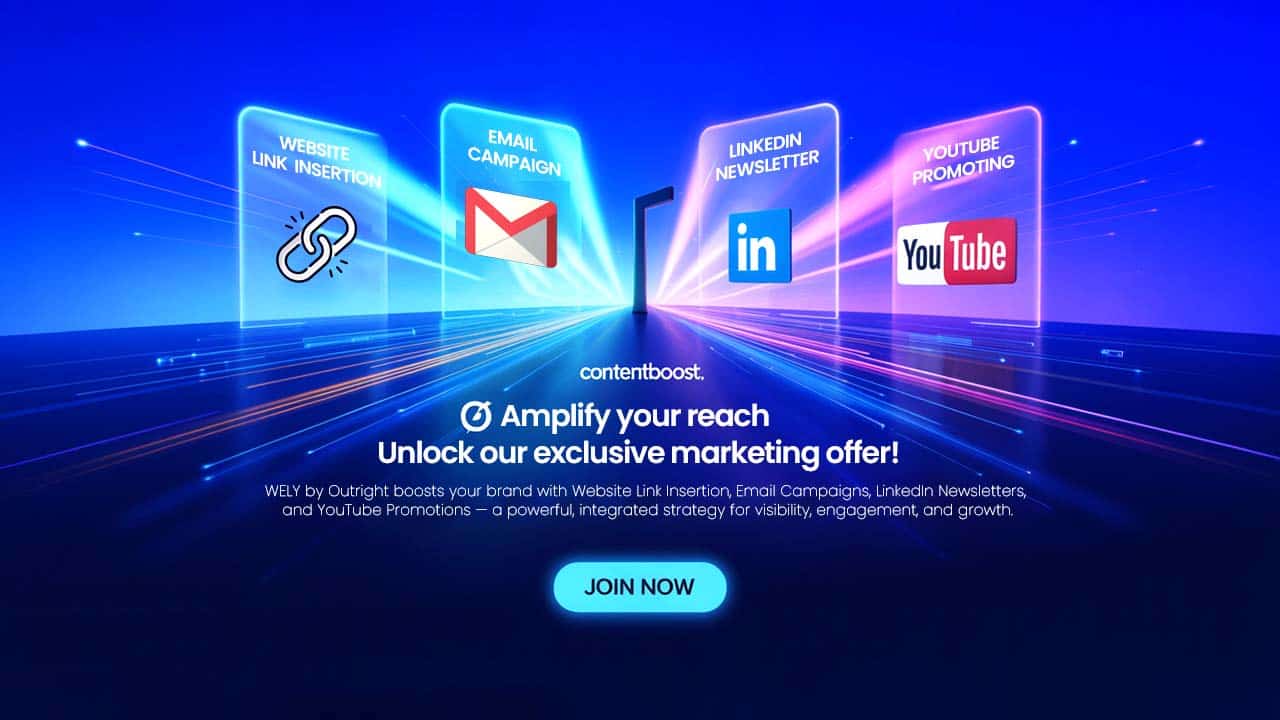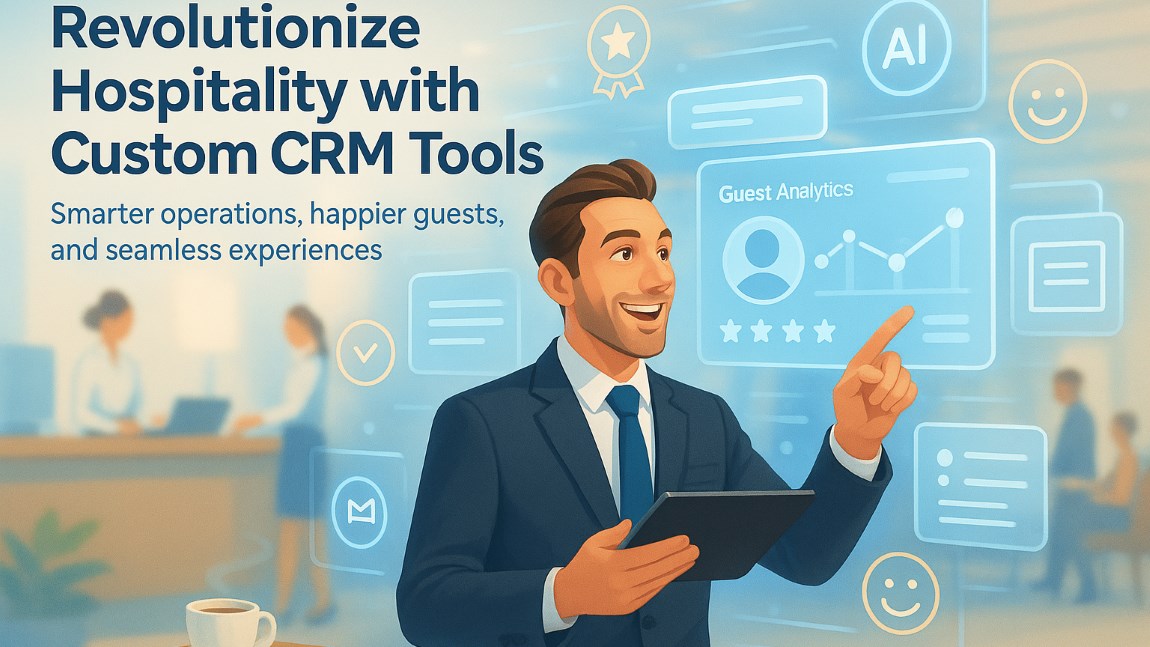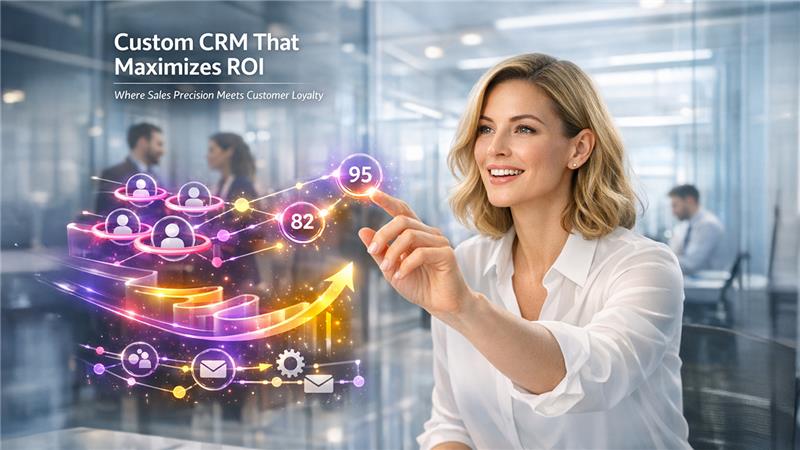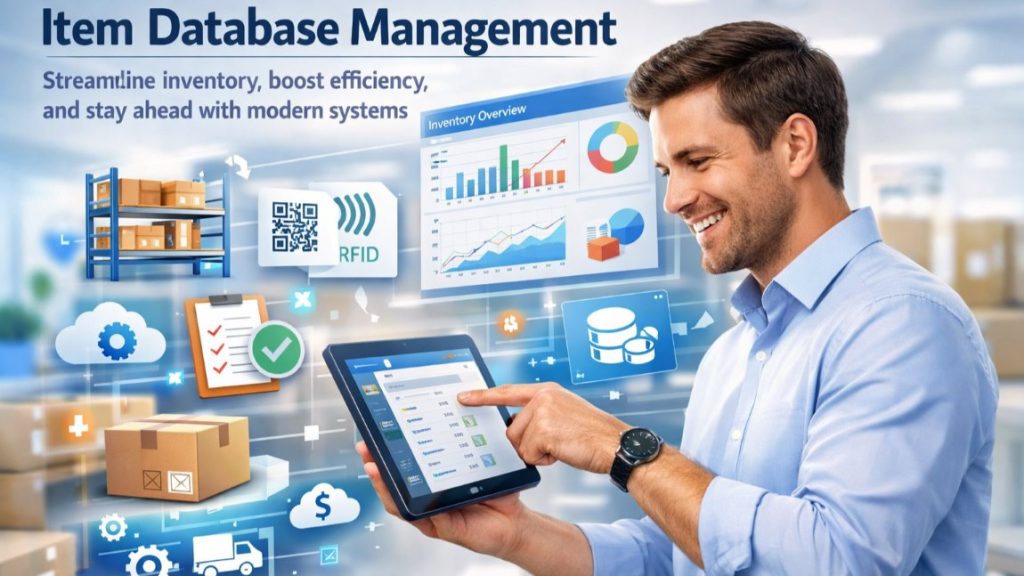Custom CRM tools are transforming the hospitality industry by providing tailored solutions that enhance guest relationships and boost operational efficiency. These tools enable hotels to deliver personalized experiences and automate
Custom CRM tools are transforming the hospitality industry by providing tailored solutions that enhance guest relationships and boost operational efficiency. These tools enable hotels to deliver personalized experiences and automate communication, distinguishing them from competitors.
In today's competitive hospitality landscape, leveraging custom Customer Relationship Management (CRM) tools has become a crucial strategy for success. The ability to connect your Property Management System (PMS) and CRM can significantly enhance hotel operations, making guest interactions more seamless and personalized. This integration is not just about technological advancement; it's about fostering a deeper connection with guests while optimizing internal processes. By combining these systems, hoteliers can gain a comprehensive understanding of their guests, leading to improved service delivery and operational efficiency.
The Importance of Custom CRM Tools in Hotels
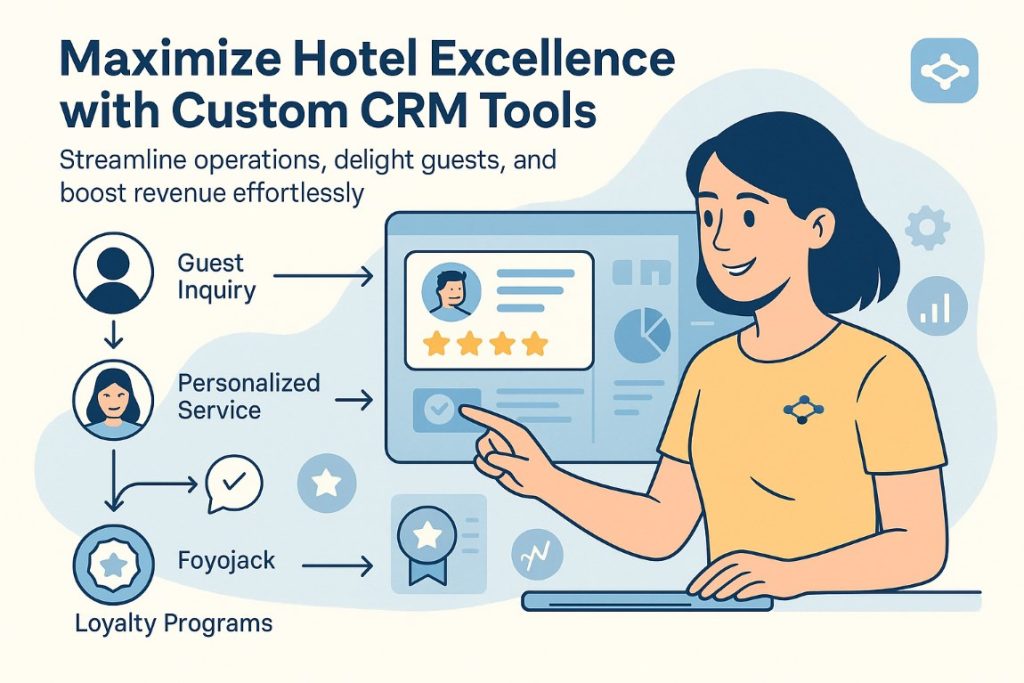
Custom CRM tools are essential for modern hoteliers seeking to optimize their operations. Unlike generic tools, these systems are designed to meet the specific needs of the hospitality industry and allow you to connect your PMS and CRM, which can help with focusing on understanding guest preferences and behaviors to facilitate personalized communication and service delivery.
The synergy between custom CRM tools and property management systems allows hotels to unify data streams, creating a cohesive platform that supports both operational needs and guest interactions. This integration is crucial for enhancing guest satisfaction by providing timely and relevant information that enhances their stay experience. By leveraging custom systems, hotels can streamline operations, reduce manual errors and ensure that all departments are aligned in delivering exceptional service.
Furthermore, custom CRM tools empower hotels to build lasting relationships with guests by tracking their entire journey, from initial booking inquiries to post-stay feedback. This comprehensive view enables hotels to anticipate guest needs before they arise, creating memorable experiences that encourage repeat bookings and positive reviews. The ability to segment guests based on their preferences, spending patterns and stay frequency allows for more targeted marketing efforts and loyalty program optimization. Hotels that invest in custom CRM solutions often see significant improvements in guest retention rates and overall revenue per available room, as personalized service becomes a key differentiator in an increasingly crowded marketplace.
Understanding the Roles of Custom CRM Tools
A property management system serves as the central hub for managing day-to-day hotel operations, encompassing tasks like room availability tracking, guest check-in/check-out processes, and financial transactions. Its primary role is operational efficiency, ensuring that all logistical aspects of hotel management run smoothly. In contrast, a custom CRM focuses on nurturing relationships with guests by collecting data on preferences and past interactions.
The CRM's core functionality is to personalize guest experiences through targeted communications and tailored services. Understanding the distinct roles of these systems allows hotels to maximize their potential when integrated. By combining operational data from the PMS with customer insights from the CRM, hotels can create a more holistic view of each guest, enabling more informed decision-making and personalized service offerings.
Exploring the Benefits of Custom CRM Integration
Integrating custom CRM tools with PMS offers numerous benefits that extend beyond basic operational improvements. One significant advantage is the enhanced data flow between departments, which ensures that all staff members have access to up-to-date information about guests and allows better oversight when paired with employee monitoring software. This leads to more efficient service delivery and better resource allocation throughout the hotel.
Moreover, integration facilitates improved decision-making by providing managers with comprehensive data insights. Understanding guest preferences allows hotels to tailor marketing campaigns effectively or offer personalized packages that enhance guest satisfaction. By streamlining operations through integrated systems, hotels can provide seamless experiences that resonate with guests long after their stay.
Steps for Successfully Integrating Custom Systems
To achieve successful integration between PMS and custom CRM tools, hoteliers must approach the process strategically. Begin by evaluating existing systems to ensure compatibility and identify any necessary upgrades or replacements. It's crucial to choose platforms that offer robust integration capabilities to facilitate seamless data synchronization across all departments.
Once compatible systems are in place, focus on training staff members to utilize integrated features effectively. Clear communication between departments is essential for maximizing the benefits of integration. Regularly assess system performance to identify areas for improvement or potential issues that may arise during daily operations.
Tackling Common Challenges in Integration
While integrating PMS and custom CRM tools presents many opportunities, it also comes with challenges that need careful consideration. Data security concerns are paramount; ensuring sensitive guest information is protected during the integration process requires robust security measures and compliance with industry standards.
System compatibility issues may also arise if existing platforms do not easily communicate with each other. Overcoming these challenges involves selecting vendors known for their interoperability features or investing in middleware solutions that facilitate smooth data transfer between disparate systems.
Future Trends Shaping Hotel System Integrations
The future of hotel system integrations looks promising as emerging technologies continue to evolve rapidly. Artificial intelligence is set to play a significant role by enhancing personalization efforts through predictive analytics based on historical guest data patterns.
Additionally, the rise of Internet of Things devices within hotels will further enhance connectivity between various operational elements, from smart room controls linked directly into PMS platforms to advanced biometric authentication methods improving overall security protocols at every touchpoint during a guest's journey.
Respond to this article with emojis
